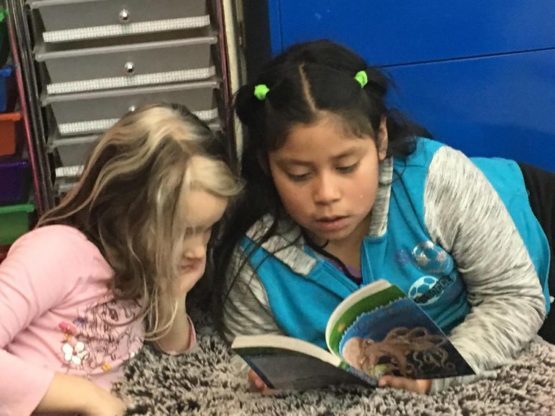Authors Kylene Beers and Robert E. Probst wrote a book titled Disrupting Thinking: Why How We Read Matters. It is an excellent book that can be used as an effective resource by teachers.
The book affirms that we should not succumb to policies and bureaucracies – who are simply accustomed to teaching students through old methods that are outdated such as the Reading Robin and Popcorn Reading. Where most students simply read out loud, one at a time, but they don’t really understand, nor care about what they are reading about.
Beers and Probst are strong advocates of giving students the power to choose what they want to read. They are also advocates for teachers, and they encourage educators to take risks and create thought provoking classrooms, creating critical thinkers, and thoughtful readers.
This book is extremely useful to me because I agreed with 99% of what Beers and Probst recommend. The powerful one percent that is missing is: how to counter public education bureaucracies who are simply demanding that teachers follow State Standards and Common Core Reading standards. Many of these mandates are outdated since they were implemented through former President George W. Bush’ No Child Left Behind education policies.
Federal, state bureaucracies and local public school districts impose on teachers what books should be read by the whole class and school. Many teachers are afraid of the administrators and are terrified of getting fired for allowing students to select which books they would like to read.
Freedom of choice and thought is regulated and limited. Title I and School Site Councils are not included in the selection and adoption of books, especially as supplemental material.
I completely agreed with the authors Beers and Probst that we have to be animated and enthusiastic as teachers – that we have to make teaching, reading, and writing interesting but also relevant to the lives of students.
We should make subjects such as U.S. Government relevant to the lives of 11th and 12th graders. Students can in fact enjoy the reading material related to U.S. Government if it tied to real life examples and scenarios. Students must feel that these topics impact their daily lives.
Public school districts get lobbied by multibillion dollar publishing corporations regarding which books to select for students to read on districtwide scales. These districts want the same old classics that are considered safe and appropriate.
Therefore, a new cadre of teachers must organize and unite to begin to implement the recommendations within the book titled Disrupting Thinking: Why How We Read Matters.
Yes, some teachers may get reprimanded, but teachers have to stand up for what is right for students. Book choice is a basic right and under Title I Federal Funding and School Site Council committees (composed of administrators, teachers, parents and students). Parents and students have a legal right, protected under federal law, to identify and select books that the School Site Council deems interesting and appropriate.
Yes, new books can be adopted and implemented within the curriculum, even if it is through the category of “supplemental material.”
If teachers are doing the same old, memorization, and top down, lecture, teaching, they are simply doing a disservice to their students. This is especially true if they are disengaged and careless to implement book choice. Many educators conveniently ignore optional books/supplemental material since they are used to teaching from the same old, classic books. How about including newer and more exciting books?
It is a fundamental right for students to be given the option to choose books that they would want to read and enjoy. Educators in both traditional and charter schools should not be killing the passion of reading and writing when we need to reinvigorate and create lifelong readers.
Thank you to Beers and Probst for stepping up and taking these risks by sharing powerful, revolutionary knowledge, which is simply to allow students to read in class.
Now, that is a radical idea — having students read what they truly enjoy. It was a top notch book that I will recommend to new and established educators.
We must disrupt to improve our public education system and to create lifelong readers and writers.

